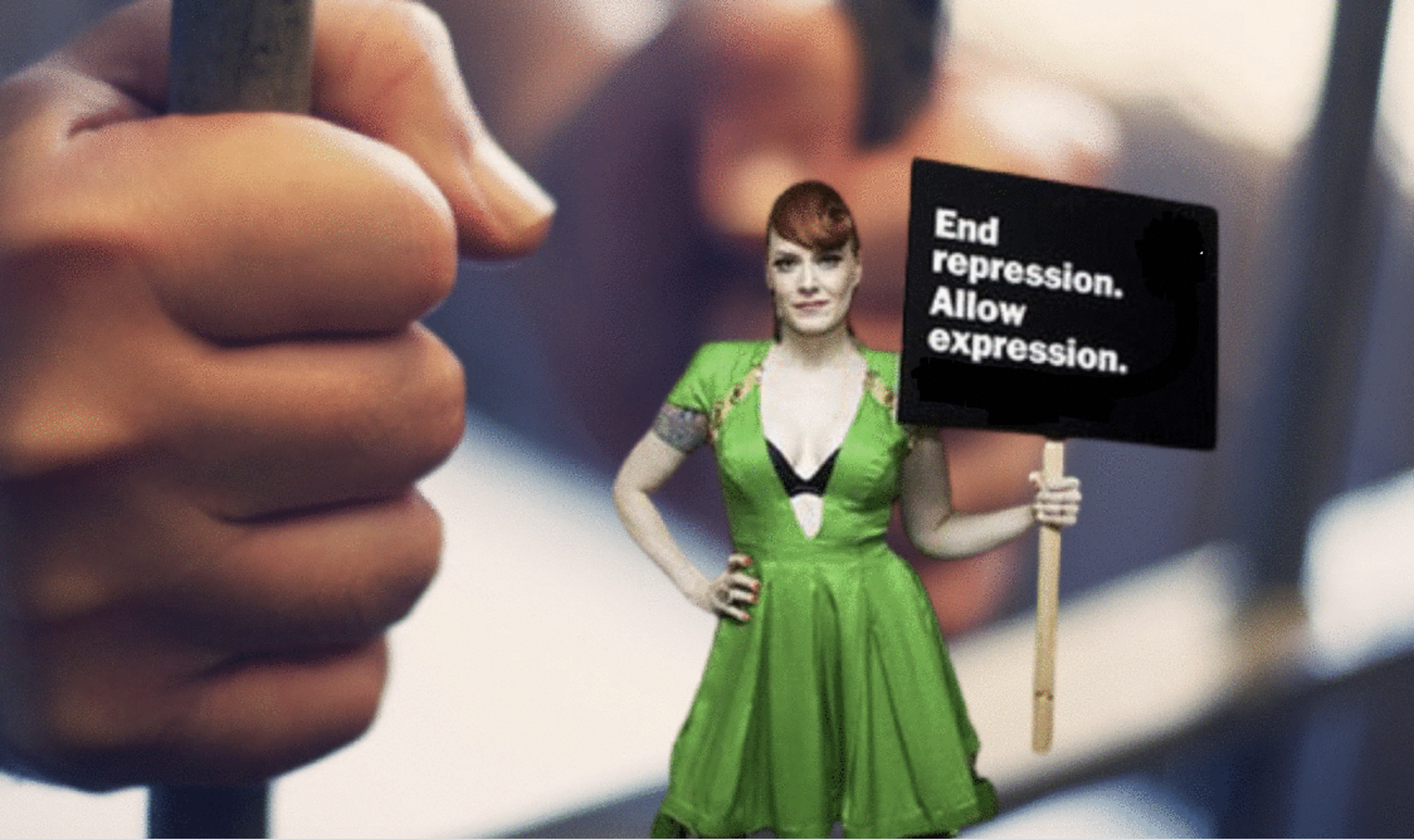Jacinda Ardern might want to bring the wedding day forward, stat. New Zealand’s fairy princess is in dire threat of her media white horses turning into rats.
After years of fawning adulation, even the bought-and-paid-for New Zealand media are starting to whisper that Cinderella’s ball gown is looking a bit ragged at the hems. After ignoring or deliberately downplaying the Ardern government’s unbroken stream of ludicrous policy decisions, the government may be growing so on the nose that the media have no choice but to start reporting the truth.
The recent farmers’ protests in New Zealand lifted the lid on a stew of simmering discontent on everything from climate policy to He Puapua. Another circuit-breaker issue is free speech. Generations who’ve taken free speech for granted may finally be starting to realise what they’re in grave danger of losing.
A generation has come of age since the Cold War ended. As the horrors of fascist and communist totalitarianism begin to recede from living memory, we are, perhaps, at risk of under-appreciating the benefits of democracy and of overestimating its durability. In these politically complacent times, it has become all too easy to focus on the flaws and failed promises of democracy and to forget how much it has done for us. It is this complacency – far more than a rising China or a resurgent Russia – that now poses the greatest threat to freedoms we in Aotearoa New Zealand have enjoyed for well more than a century.
Several surveys have shown that younger generations are growing increasingly hostile to democracy, favouring instead totalitarian ideologies like socialism. At the same time, surveys also show that a great many of them don’t actually understand either concept.
One way in which we tend to take democracy for granted is by assuming it is defined by the institution of voting. It is true that choosing political representatives by ballot is a viable way of implementing democratic government, but if a democracy is to thrive, its foundational values must be understood and honoured by its citizens. There are many countries in which a semblance of voting occurs, but which are not really democratic (Russia is one example).
The great misunderstanding is to assume that democracy makes free speech possible. In fact, the opposite is true: there can be no democracy without free speech. This was the basis of the Australian High Court’s ruling of an “implied right to free speech” in the Australian Constitution.
The other great mistake of the ‘hate speech’ laws advocates is that ‘equal rights’ of supposedly oppressed minorities is the first principle, with free speech lagging well in the distance.
But, just as free speech is the midwife of democracy, it is the only thing which makes equal rights possible rights. Without free speech, no oppressed people can demand equal rights.
In a democracy, ideas and policies must always be contestable – and actually contested – so we can muddle our collective way towards improvement. The contest of ideas that democracies enable is arguably the reason they have been so good at increasing standards of living and, albeit gradually, liberty and equality as well.
Nonetheless, because we continue to fall short of realising the democratic ideal of equality, it is unsurprising that some see free speech as the privilege of the powerful to say whatever they want, often to the detriment of the less powerful. But, while understandable, this characterisation is superficial and fundamentally incorrect. If we were to abrogate free speech, we would undermine democracy and make full equality even harder to attain. As Holocaust survivor Aryeh Neier put it, “Those who call for censorship in the name of the oppressed ought to recognise it is never the oppressed who determine the bounds of censorship.”
Any law that prescribes the limits of free expression inevitably lead back to a cabinet room.
A society that leaves it to politicians, the courts or – worse still – the police to determine which ideas may be expressed and which may not is no true democracy, whether or not it holds elections. If the ability to say things that may offend is legally hindered, then the contest of ideas necessary to keep a democracy healthy is hindered as well. Many good ideas may never be expressed, and many bad ones may go unrebutted[…]
Three years ago, Massey University’s Vice-Chancellor Professor Jan Thomas justified banning Don Brash from speaking there on the grounds that his expressed views on the latter issue came “dangerously close to hate speech”.
In whose view? That is the question one must always ask of the would-be censors: who gets to decide?
Statements like Thomas’s make it clear why the Government’s proposed legislation might stifle public debate. Had this legislation been law at the time at which Brash expressed his views, would he – the leader of the National Party until 2006 – have been liable to jail time? We can ask similar questions about other debates; in fact, Newshub journalist Tova O’Brien recently asked Justice Minister Kris Faafoi a series of questions along these lines. For example, could millennials be imprisoned for saying rude things about boomers and their stranglehold on the housing market? Faafoi couldn’t say.
Newsroom
Or didn’t want to.
But we have some very good historical examples of how ‘hate speech’ laws work out in the real world. The German Weimar Republic, for instance, had quite strong ‘hate speech’ laws – and wasn’t afraid to use them. Leading Nazis were repeatedly jailed, and their newspapers banned and confiscated.
How did that work out?
Pretty well for the Nazis, actually: once they seized power, they had a handy set of laws, ready-made, to stifle all remaining dissent.
Please share this article so that others can discover The BFD

